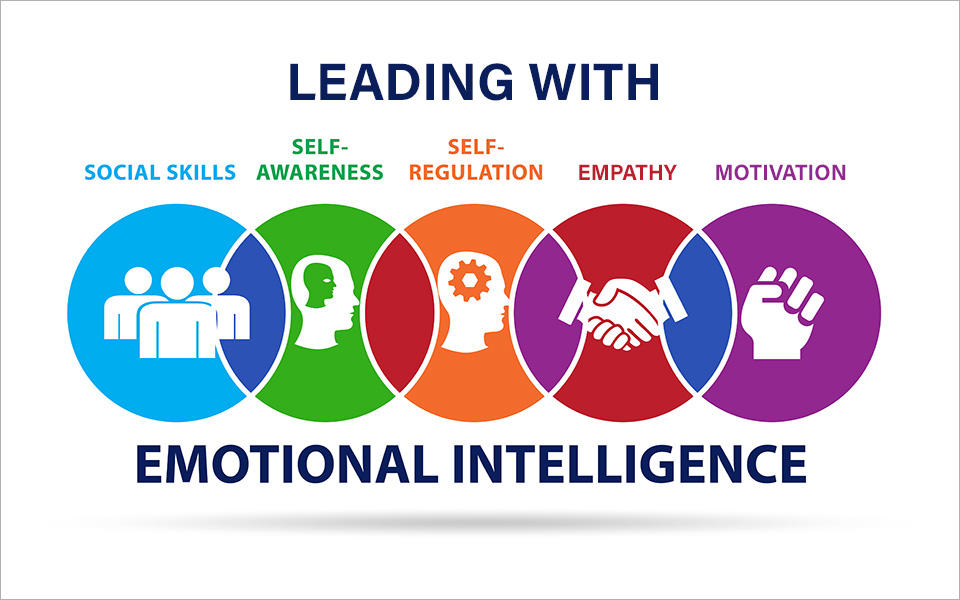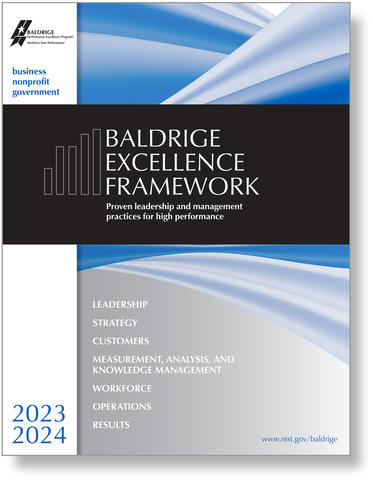Blogrige
The Official Baldrige Blog


This year’s Baldrige 35th Quest for Excellence Conference featured many presentations on ways to help your organization become more resilient, sustainable, and meaningful for your workforce, with lessons shared on leadership, social responsibility, customer focus, strategy, measurement, and much more.
“Leading with Emotional Intelligence” presented by Dr. Latitia McCane of the Apprentice School in Newport News, VA, guided audience members’ reflections on the differences between emotional intelligence (i.e., emotional quotient, or EQ for short) and intelligence quotient (IQ). McCane spoke on how to increase your EQ as part of leadership and personal development and led the audience through a series of exercises.
She described emotional intelligence as people’s ability to understand their own emotions and the emotions of others, and to act appropriately using these emotions.
“Emotional intelligence never stops growing because we are always evolving as people. EQ is something that must be nurtured,” she said.
EQ or IQ?
"Ninety percent of the success of outstanding leaders is attributable to EQ, which is twice as important as IQ,” said McCane, adding that people with high EQ tend to have better general health, quality of life, relationship quality, and personal effectiveness.
In comparing IQ and EQ, she described IQ as the measures of an individual’s memory, vocabulary, and visual motor skills. She said IQ peaks at the age of 17 and remains constant through adulthood. EQ contributes to self-awareness, self-regulation, motivation, and empathy. It is not fixed and can be improved throughout life, she said.
McCane said the importance of EQ comes through in leaders (enhanced ability to influence and engage), schools (students’ success in learning and life), organizations (the human side of high performance), health care (more effective patient care), and personal life (more joy and satisfaction in life and with family).
How to Develop a Higher Sense of Emotional Intelligence
In addition to presenting an emotional intelligence map, the competencies of EQ, and a four-quadrant development model, McCane shared some ways to develop your EQ:
- Become emotionally literate; label your feelings, rather than labeling people or situations. (Say “I feel” instead of “I know.”)
- Distinguish between thoughts and feelings.
- Take more responsibility for your feelings.
- Use your feelings to help make decisions.
- Use feelings to set and achieve goals.
- Feel energized, not angry.
- Validate other people’s feelings
- Use feelings to help show respect for others.
- Don’t advise, command, control, criticize, judge, or lecture to others.
- Avoid people who invalidate you.
EQ and the Baldrige Framework
Although EQ and IQ are not expressly called out in the Baldrige Excellence Framework® (which includes the Baldrige Criteria for Performance Excellence®), they are certainly implied in the intrinsic qualities that help a leader lead. For example, developing EQ could help leaders address the following Baldrige Criteria questions:
1.1b: Take a direct role in motivating the workforce toward high performance and a customer and business focus
1.1b: Encourage frank, two-way communication
1.1c(1): Create and reinforce an organizational culture that values and fosters customer and workforce engagement, safety, diversity, equity, and inclusion
1.1c(1): Cultivate organizational agility and resilience, accountability, organizational and individual learning, innovation, and intelligent risk taking
1.1c(1): Participate in succession planning and the development of future leaders
1.2c(2): Contribute to the well-being of environmental, social, and economic systems
In addition, emotional and intellectual commitments are part of the Baldrige glossary definitions of workforce and customer engagement, for which EQ could help leaders understand and sustain such engagements.

Baldrige Excellence Framework®
The Baldrige Excellence Framework® has empowered organizations to accomplish their missions, improve results, and become more competitive. It includes the Criteria for Performance Excellence®, core values and concepts, and guidelines for evaluating your processes and results.
Purchase your copy today!
Available versions: Business/Nonprofit, Education, and Health Care





